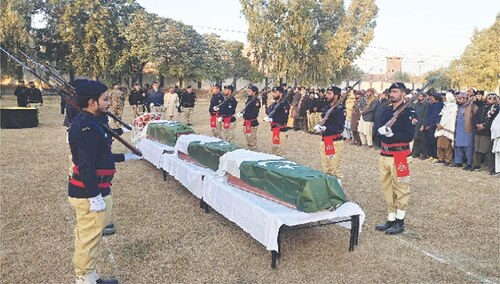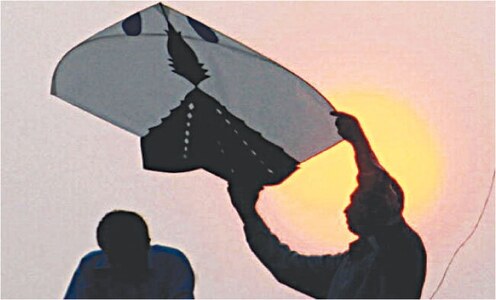WASHINGTON, Oct 10: The US pressure on President Pervez Musharraf to do more in the war against terror has been counter-productive and the battle against extremists in the tribal areas has been lost, a key congressional panel was told on Wednesday.
Witnesses appearing before the House Armed Services Committee also noted that the United States has been publicly involved in arranging a power-sharing deal in Pakistan, which may hurt its image if the arrangement fails.
“I’m concerned that our policy toward Pakistan has not been as comprehensive as it should be,” said the committee’s chairman, Congressman Ike Skelton. “We may be unprepared to handle the repercussions if events in Pakistan continue to move as rapidly as they have in recent years.”
The powerful committee, which oversees US military policies, invited a host of witnesses to speak on “security challenges involving Pakistan and policy implications for the US Department of Defence.”
“We’ve put additional pressure on President Musharraf,” Dr Marvin Weinbaum of Washington’s Middle East institute told the committee. “Let me suggest, however, that increasingly this pressure has been counter-productive.”
He said that the actions President Musharraf took under pressure had not only fallen short “but have had the double-barrelled effect of intensifying opposition within the frontier region and also eroding his political support in the country.”
Mr Weinbaum, a veteran South Asian scholar who has authored several books on Pakistan, warned: “Most of us who look at Pakistan believe at this point in time (believe) that Pakistan has in the northwest frontier area lost the battle against extremism and terrorism.
“And the consequences … are quite considerable for the United States, for our success in dealing with the insurgency in Afghanistan, stabilizing that country, and of course uprooting the Al Qaeda network and the spread of Islamic extremism in Pakistan,” he said.
“And … the consequences … for Pakistan, its stability, its integrity are really tied up with what happens in that tribal region.”
Congressman Duncan Hunter, the ranking Republican member of the committee, however, noted that Pakistan is committed to the war against terror, has deployed nearly 100,000 troops in the tribal belt, some of them coming off the Indian border, and hundreds of Pakistani troops also have died while fighting the terrorists.
But “there’s been information that I’ve seen to the effect that most of that corps resides in garrison and is not undertaking what one might call aggressive operations,” he added.
Teresita Schaffer, a former US ambassador and now director of the South Asia programme at the Centre for Strategic and International Studies in Washington, told the committee that in the past six months, President Musharraf has been seriously weakened.
And “the major non-religious political figures, in my view, have been diminished; and the US has been publicly involved in the deal-making leading to Pakistan’s next government,” she observed.
“I expect that Musharraf’s election last weekend will eventually be confirmed by the Supreme Court and that legislative elections will be held in January,” she added.
Ambassador Schaffer warned that the government that follows these elections is likely to be an uneasy one. “Musharraf will be one power centre. He believes in unity of command … and is not particularly interested in power-sharing. Both his political party and perhaps the army will be strongly tempted to manipulate the elections to minimise Ms Bhutto’s claim on power,” she said.
“If Bhutto does participate in government, she will strongly defend her turf. And assuming that Musharraf retires from the army, that institution will be under new leadership and will be a distinct power centre, no matter how careful Musharraf has been to promote officers loyal to himself,” she said.



































